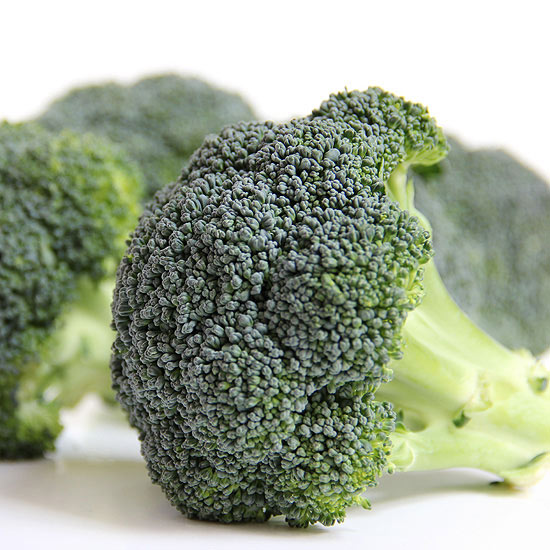
Step 1: Select & Buy Broccoli
Wait to give your baby broccoli until he is 8- to 10-months-old — this fiber-filled veggie can be rough on a very young baby's digestive system and cause gas. Use frozen or fresh broccoli. When purchasing fresh, pick broccoli with tight florets and rich green color (stalks will be a lighter green). Peak season for broccoli is October through April, although broccoli is available year-round. One medium-sized bunch of broccoli yields about eight ounces of puree.
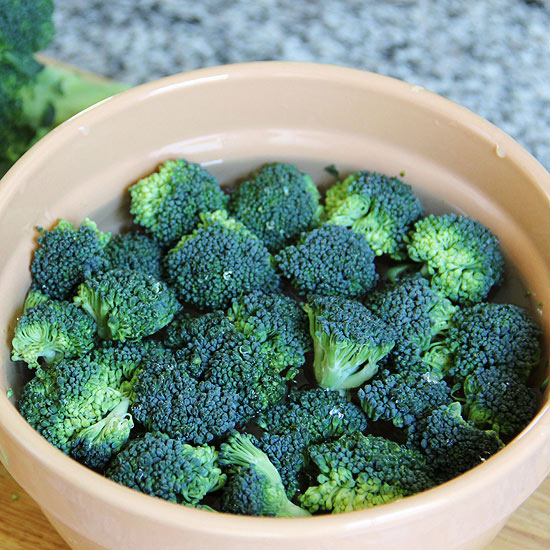
Step 2: Wash the Broccoli
No need to wash frozen broccoli. If you're making your puree with fresh broccoli, remove stalks and florets and soak in cold water for two minutes. Rinse under cool running water and pat dry with paper towels.
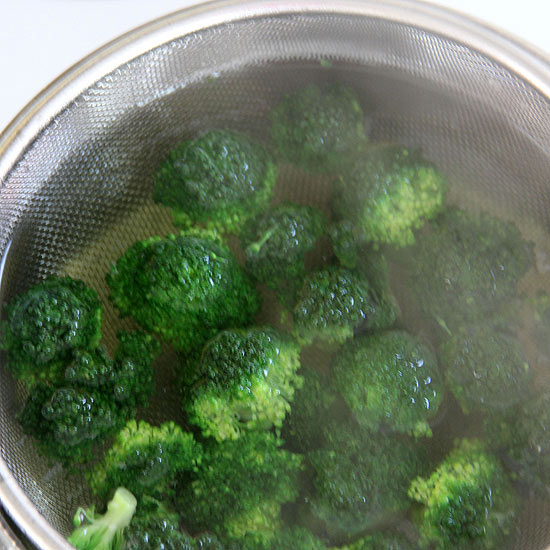
Step 3: Cook the Broccoli
Bring water to a boil in a medium saucepan. Reduce heat until bubbles are soft. Cook until tender (about 15 minutes). Drain, rinse with cool water for three minutes to stop cooking process. Set aside.
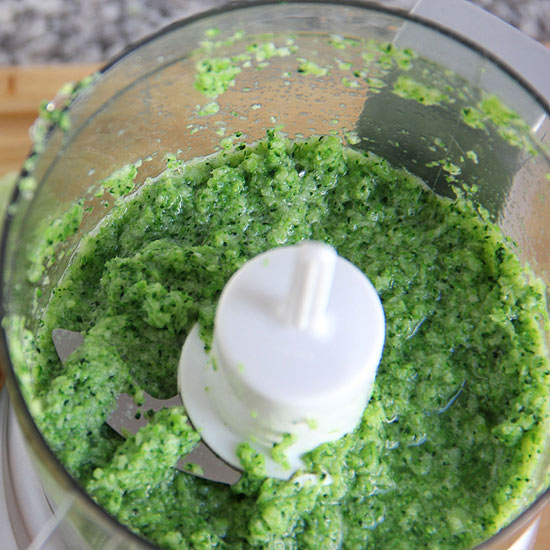
Step 4: Puree the Broccoli
Puree broccoli in a food processor or blender until smooth. Add water as needed to reach desired consistency; for a creamier texture, replace water with breast milk or formula. When baby is ready for finger foods, typically around 10 months, you can serve him whole broccoli florets cut into tiny pieces.
Step 5: Serve Broccoli Puree
Broccoli is an ideal mix-in with other veggies, grains, and protein. Try mixing broccoli puree with:
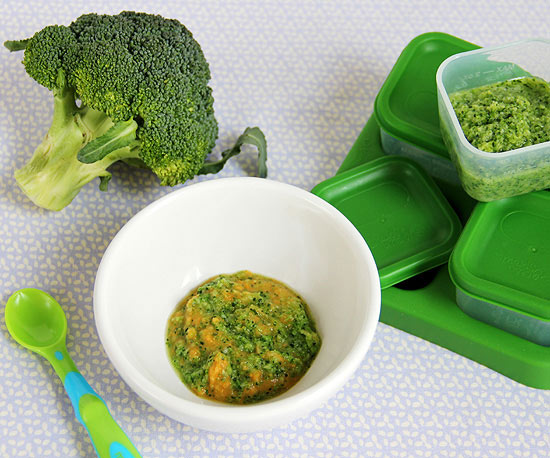
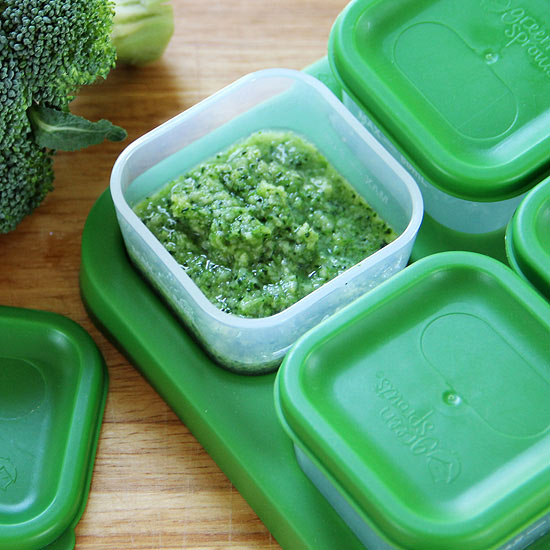
Step 6: Refrigerate or Freeze Leftover Broccoli Puree
Cool broccoli puree and refrigerate leftovers in BPA-free containers for up to 3 days. Freeze leftovers for up to 3 months. Thaw overnight in your refrigerator.
Note: Always check with your pediatrician before introducing your baby to a new food, particularly if your baby has food allergies. Additionally, some pediatricians do not recommend making your own carrot, beet, or spinach puree because these fresh veggies can be higher in nitrates.
Copyright © 2012 Meredith Corporation.
